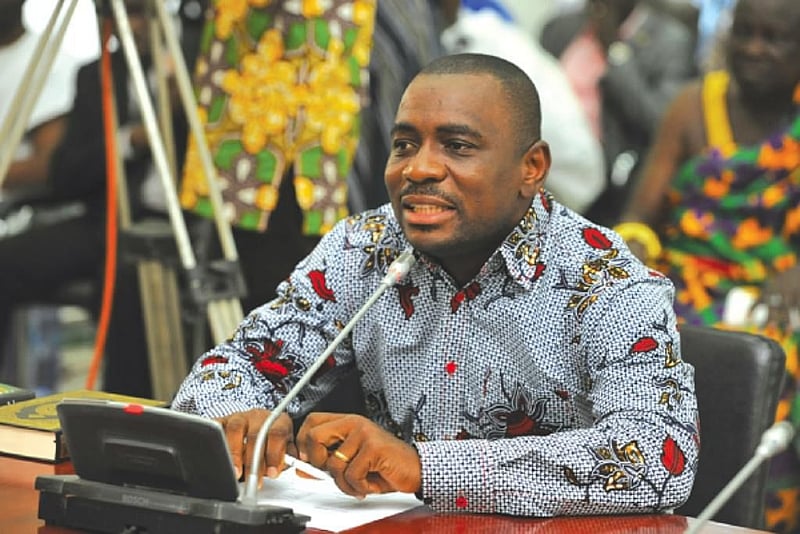Ghana’s road infrastructure deficit presents a significant challenge that demands a multi-pronged approach to secure sustainable funding. Kennedy Nyarko Osei, Ranking Member on the Roads and Transport Committee of Parliament, has highlighted the chronic underfunding of road projects, with successive governments only managing to provide a meager 30% of the planned annual investments. This consistent shortfall has created a cascading effect, leading to a backlog of payments owed to road contractors, escalating financial burdens on the Ministry of Roads and Highways, and ultimately hindering the country’s overall development. The reliance on traditional funding mechanisms has proven insufficient, necessitating an exploration of innovative and sustainable alternatives to bridge the 70% funding gap.
Osei’s call for a paradigm shift in road infrastructure financing centers around several key proposals. One prominent suggestion is the embrace of Public-Private Partnerships (PPPs) for major economic roads. This model leverages private sector expertise and capital to deliver critical infrastructure projects while easing the financial burden on the government. By sharing the risks and rewards, PPPs can accelerate the development of vital road networks that contribute significantly to economic growth. Another proposal targets the mining sector, advocating for a revision of the Mining Act to hold mining companies accountable for the maintenance and development of roads within their operational areas. This targeted approach ensures that those who directly benefit from the road network contribute to its upkeep, relieving pressure on the public purse and fostering a sense of shared responsibility.
Furthermore, Osei champions the introduction of road infrastructure bonds as a mechanism to raise dedicated funds for road development. This approach allows the government to tap into capital markets and secure long-term financing for large-scale projects. By issuing bonds specifically designated for road infrastructure, the government can ensure transparency and earmark resources directly to address the pressing need for improved road networks. This strategy not only diversifies funding sources but also provides investors with an opportunity to participate in the nation’s infrastructure development. The proposal to review fuel levies and channel them into the Road Fund aims to bolster revenue generation specifically for the development and upkeep of social roads. This dedicated funding stream would address the chronic underfunding of essential roads that serve communities and facilitate access to basic services.
Osei’s proposal to review fuel levies flowing into the Road Fund recognizes the importance of ensuring adequate resources are available to maintain and expand the network of social roads. These roads, often overlooked in favor of major economic arteries, play a crucial role in connecting communities, facilitating access to essential services, and fostering economic activity at the local level. By strengthening the Road Fund through a revised fuel levy structure, the government can guarantee a consistent and reliable source of funding for the development and maintenance of these vital connectors, ultimately contributing to inclusive growth and improved quality of life for all citizens. This dedicated funding stream would ensure that essential road infrastructure is not neglected, promoting equitable development across the country.
The implementation of tolls on overpasses and alternative routes represents another crucial component of Osei’s comprehensive approach to sustainable road financing. This user-pay model ensures that those who directly benefit from these infrastructure improvements contribute to their upkeep, creating a direct link between usage and funding. By leveraging toll revenues, the government can establish a dedicated funding stream for the maintenance and operation of these specific road segments, reducing the strain on the overall budget and ensuring the long-term sustainability of these critical infrastructure assets. This targeted approach promotes responsible road usage and reinforces the principle of cost recovery.
In conclusion, Kennedy Nyarko Osei’s call for sustainable road infrastructure financing offers a roadmap to address Ghana’s persistent road deficit. By diversifying funding sources, leveraging private sector participation, and implementing user-pay models, his proposals offer a holistic approach to tackling this critical challenge. The combination of PPPs for major economic roads, revised mining regulations, road infrastructure bonds, a strengthened Road Fund, and targeted tolling mechanisms creates a synergistic framework for sustainable infrastructure development. These measures, if implemented effectively, hold the potential to bridge the funding gap, reduce the burden on central government investments, and pave the way for a more robust and resilient road network that supports Ghana’s economic growth and development aspirations. The successful implementation of these strategies requires a concerted effort from all stakeholders, including government agencies, private sector partners, and the public, to ensure a collaborative approach to achieving sustainable and long-term solutions for Ghana’s road infrastructure challenges.


